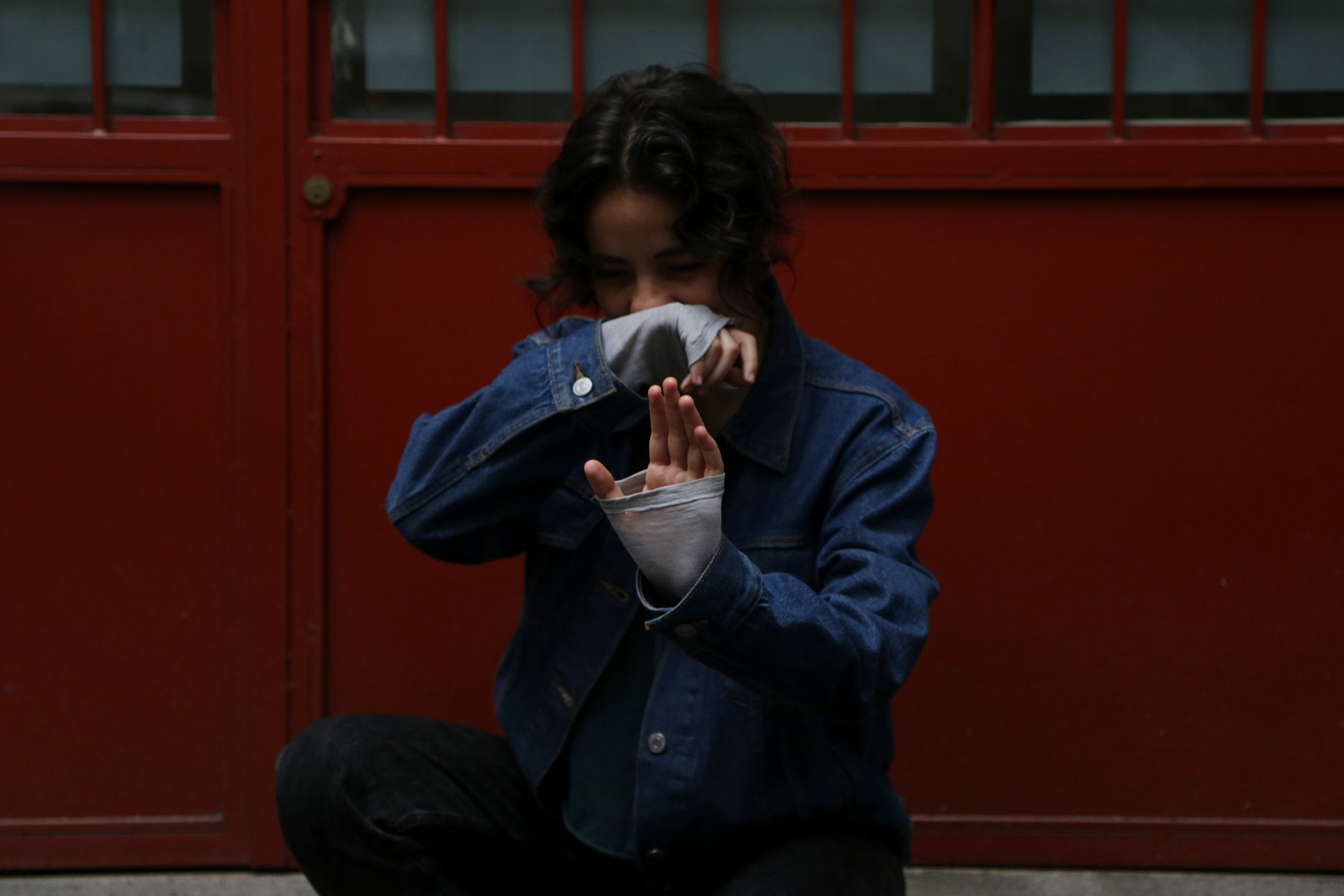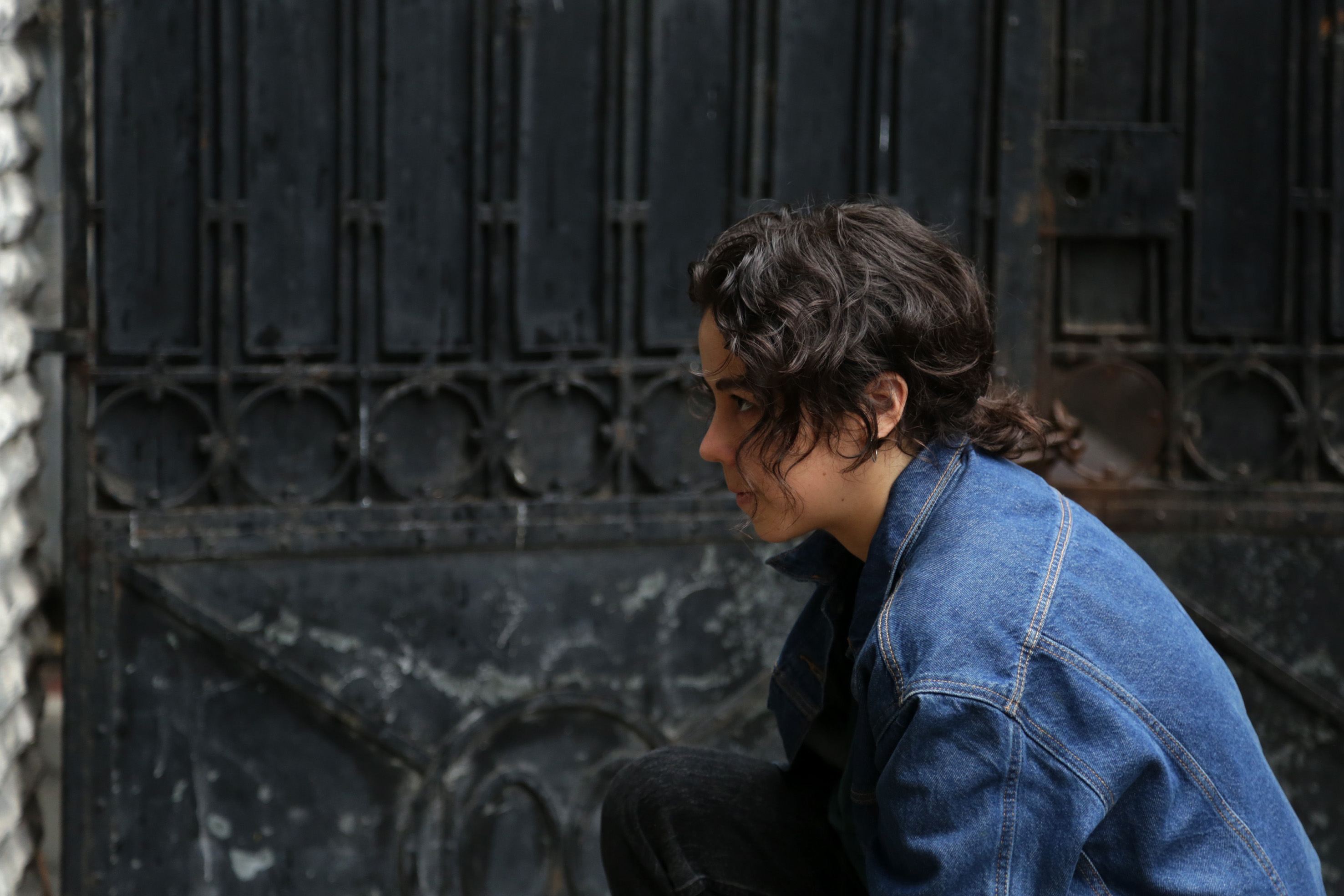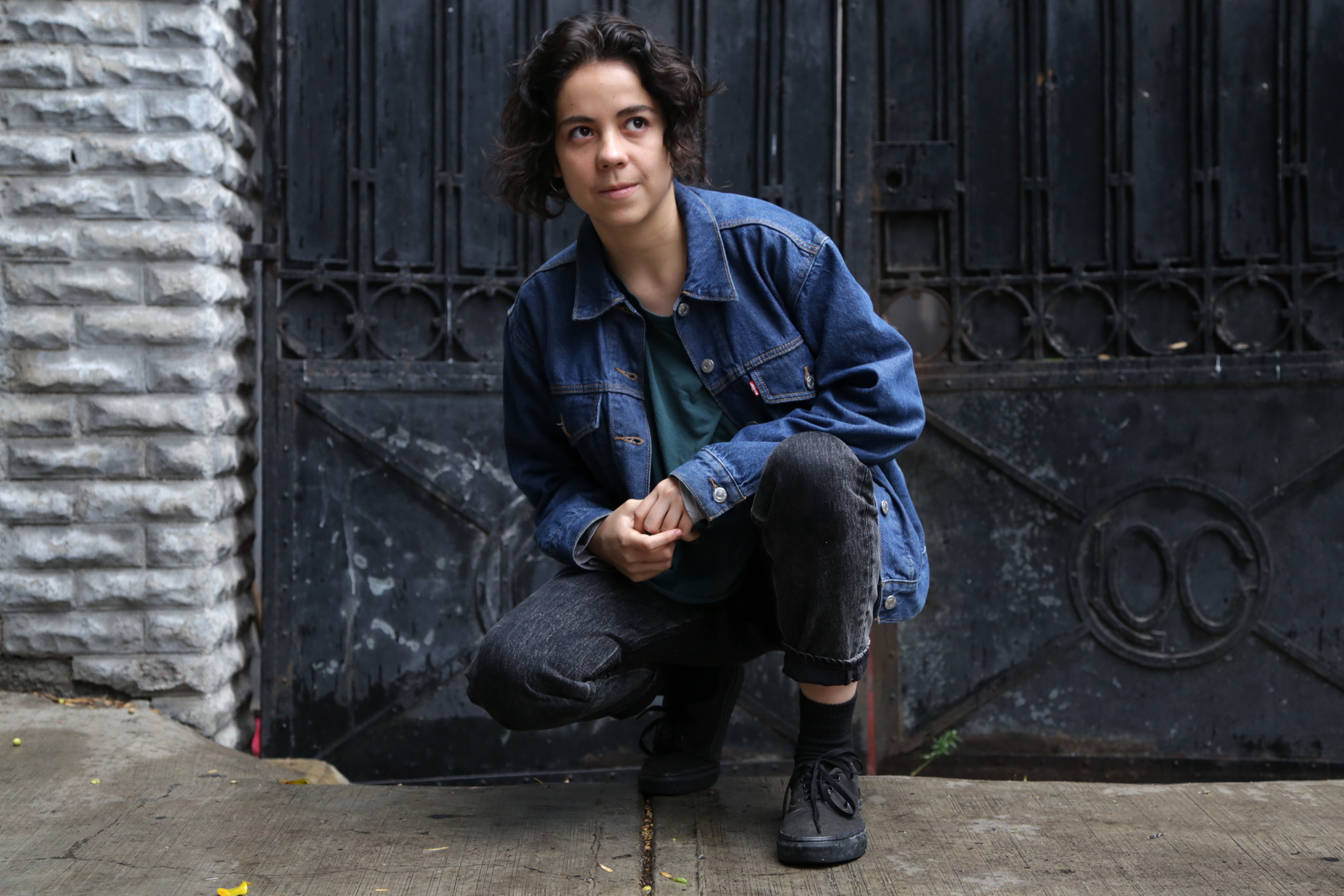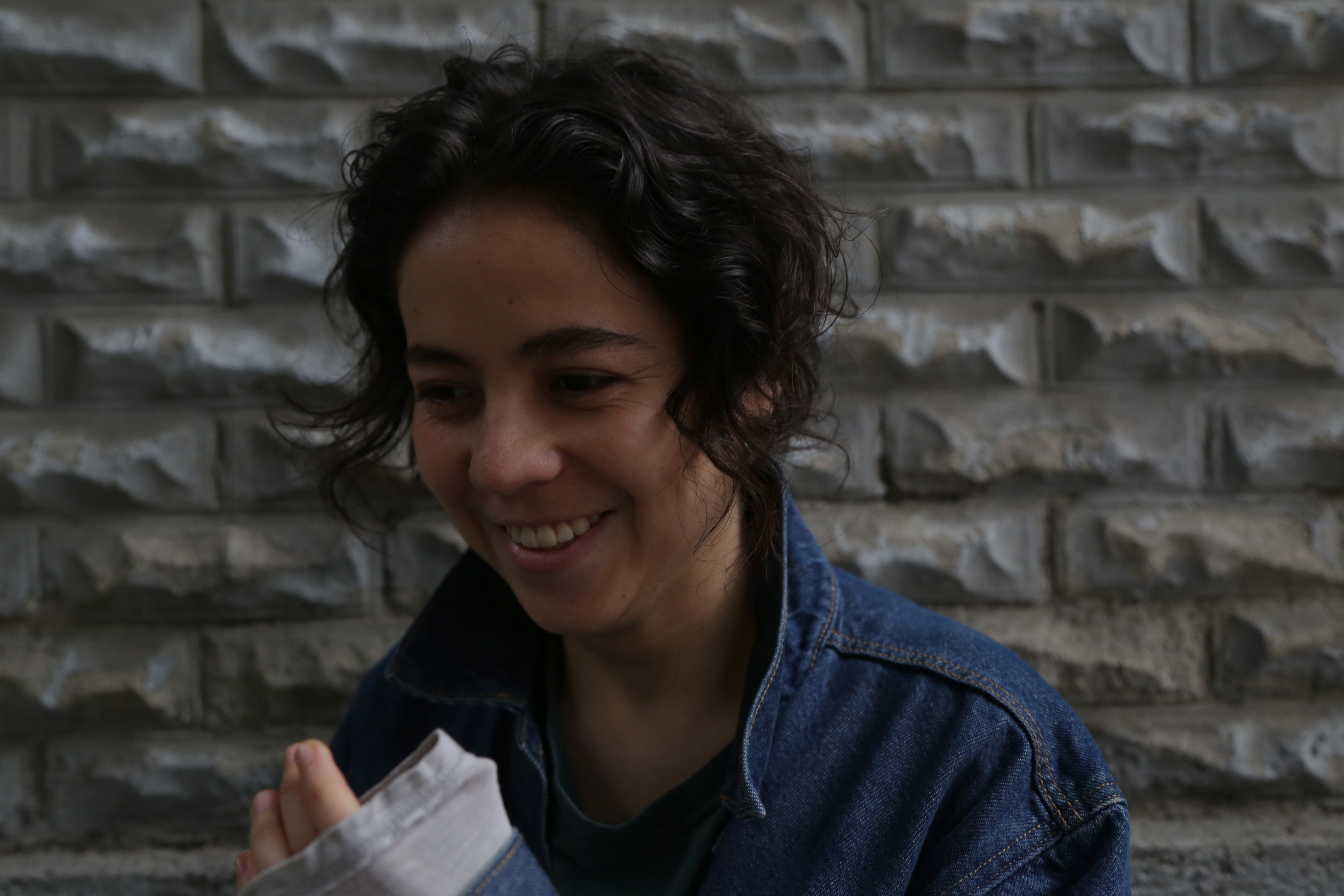Bubblin’ Up: Mabe Fratti
The rising Guatemalan cellist tells the story behind her work.

Bubblin’ Up: Mabe Fratti
The rising Guatemalan cellist tells the story behind her work.
Mabe Fratti is a cellist now based in Mexico City. Ask music fans for regional tips, and Fratti’s name is likely to crop up more than once. After various low-profile live performances across Guatemala and Mexico, including her Aire Libre 105.3 FM live Session, in August she released Aprendiendo a Hablar (meaning “Learning to Speak”), her EP debut, before signing to Hole Records for her debut album, Pies Sobre La Tierra, meaning “Feet on the Ground.” Available now, the eight-track long-player—only her second label outing—is a chillingly-beautiful showcase in the delicate and deeply intimate soundscapes Fratti creates using only synthesiser, vocals, and her cello.
Fratti grew up in Guatemala, with a backdrop of violent crime and homicide. During the early ’00s, murder rates in Guatemala were higher than during the country’s 36-year civil war during which an estimated 300,000 people were killed. Zona 12, in particular—Fratti’s hometown—bore witness to a proliferation of youth gangs, known as “maras,” creating a volatile environment that her parents sought to protect her from.
Encouraged by those close to her, Fratti began playing cello and attended a local academy. It became clear that she was a fast learner, though a natural non-conformist, and an appreciation for electronics led her to blend them with her cello. She’s filled her time since by performing in several experimental bands, all the while developing her own musical voice through live sets and self-releases, many of which can still be found on her Soundcloud page. Now based in Mexico, a relocation driven by the artistic community she’s found there, she feels more settled than every before, musically and otherwise. On the back of her debut album release, XLR8R connected with Fratti to learn more about the story behind it.
You’re born and raised in Guatemala, but where?
The first years of my life were in Zona 12, Guatemala. That area is quite big, and not really safe in some of its areas. It has the long street Atanasio Tzul, which is surrounded by factories and a floating Canadian cabin. There’s also the National University, Universidad San Carlos de Guatemala, and a recreational park (the IRTRA) for the working class of the private sector that was founded by entrepreneurs collaborating with the government back in the ’60.
We lived on the second floor of my grandparents’ house in a neighborhood called La Reformita. My grandparents looked after me and were really caring while my parents worked. Most of my time was spent either inside the house or in school. Then we moved to the suburbs of Guatemala, which are really dull—just tons of houses designed with an underlying sense of paranoia, in the sense that most of these neighborhoods are walled. Carretera a El Salvador. Still, before it got really populated, Carretera a El Salvador had lots of vegetation, and growing up with that was good.
What was your childhood like?
My childhood was quite tranquil in the sense that my parents were really caring. They were committed to building a good family. They were also quite focused in getting us, meaning my siblings and I, a good education. So, for example, my mother was really into discipline through TV restrictions and lots of lecturing.
There was a lot of violence going on around you. How did this affect you?
I was not allowed to do many things that involved being outside. The outside was full of the mystery of threat. Public safe spaces in Guatemala City are few, and there are many social tensions that result in violence, so it’s not easy to ignore what’s going on. You’re supposed to be paranoid, but you actually kind of get used to a certain kind of alertness. I am of the thought that you cannot be extremely cautious all the time, and that it’s good to roam around the city. There are so many beautiful things there.

Did you feel isolated as a musician?
Sometimes. There’s not a lot of creative spaces for artistic education—most of it is very traditional—in Guatemala, but there is a lot of information in the streets, outside, or of course the infinite paths of the internet. From there, you can choose to follow whatever nurtures your own creative aspirations, and it’s a matter of making decisions based on your own criteria or listening to people that you’re surrounded with who are in a similar process. I think that your friends or the people you admire curate your process.
And I have this theory that in small cities there’s some kind of special self-design that fosters interesting eccentricities that stem not from a “global” sense of innovation but only from the very personal pursuit of self-realization. You don’t have many direct references; you have to find whatever makes sense in your direct surroundings and take that as inspiration for moving forward. You also have to find creative ways of expressing with fewer direct resources. I mean, many things that happen have to be DIY. There’s really not much of a scene: identity is something you have to build according only to your own notion of what you feel you like.
Did you find this lack of infrastructure—labels, venues, etc.—frustrating?
Definitely. When you start making a music project, it all starts from an inner feeling of just doing music. That happens in Guetamala, but it quickly becomes frustrating when you look to move forward because there are no forums to grow your work. It’s hard because there is nothing going on and you feel that you won’t be able to have success.
How did you find your way into music, in particular the cello?
I wanted to play the saxophone when I was really young. Then they told me that I had some breathing problems and I started accompanying my sister to her violin lessons. After the lessons there was some kind of ensemble that I really liked watching. The cello caught my eye, and I had the privilege to be able to take lessons, so I started playing the cello. I still want to play the saxophone, though!
You learned at an academy, correct?
Yes, it was a small academy designed by musicians from the National Symphony. I basically followed my teacher around, Alfredo Mazariegos. He tried to teach me discipline, and he taught me to question everything. To search for a personal voice, not only musically but also as a person. We had lots of conversations. He has a strong personality. After some time, the academy became harder to embrace because its teaching structure clashed with my chaotic nature.
How supportive was Alfredo towards your unconventional methods of blending cello with electronics?
I don’t think he ever saw this side of me. If he did, he’d just have laughed. I don’t actually think he liked anything that happened with music after 1930! He certainly didn’t like minimalism, we talked about this. But he’d always respect what I did, even if he personally didn’t understand it.
Were you a natural, do you think?
I don’t know, I did feel really “able” to play the cello in the sense that I didn’t feel the frustration not being able to learn to play. So maybe that made me some kind of natural.
How did you begin touring around, and when did you begin recording your material?
I started touring more here in Mexico City, and it all happened as I met more musicians and we started making plans on moving around because they knew a place here or there. Also through social media I started receiving invitations. I bought my first recording equipment like 8 years ago, that’s when I started recording.
How did your musical development overlap with your education?
I studied Journalism, Art History, for one month, Liberal Arts, and also to be a Sound Technician, but I didn’t finish any of them. I was always longing to do something connected to my creativity. I found what I learned in college interesting in its own way, but it wasn’t as inspiring as making music or reading something that I had selected.

What do you sing about in your music?
Sometimes I don’t say anything and just use invented words. But when I write, most of my lyrics are quite existential, but I never want them to sound solemn. In this particular album, Pies sobre la tierra, I was thinking about how we plan things in our heads and how we export that into the real. The interaction of these seemingly separate spaces of mind-reality.
How did this impact the sound of the album?
I feel it’s really introspective, so the sound brings you inside your head but the lyrics are talking about the outside and how you connect to it.
How is this connected to the album title, Pies Sobre La Tierra, meaning “Feet on the Ground.”
I was thinking about what we think we can change about reality, and how we make some kind of boundary between our bodies and our mind which becomes this theoretical space for planning, when in reality we’re all here standing, in the ground. I don’t think there’s any real boundary. Then I put all this dreamy music around the concept.
Where does this sadness come from in your music?
This makes me laugh a little bit. I know the music is sad, and I’m now even looking to change that my sound into something more neutral and energetic. I think this neutrality happens when I play free improvisation in live shows. However, I feel like I’m in a state of constant melancholy and my music, especially when it’s composed and produced like in this case, is just a reflection of how I feel. I like introspective music. But I’m not actually sad, if you get to know me; I actually laugh an awful lot!
You’re now based in Mexico City. What drove the move, and how do you find living there?
I met some really beautiful people here at CDMX in 2015. It was a kind of music residency in which musicians from Central America, Mexico, Germany, and Finland reunited and created a show. I felt extremely attracted to the city, and so I moved here at the end of 2016. It has been the most enriching learning experience of my life. I’ve met some great and inspiring musicians, and I’ve had the fortune of playing with many of them. I feel I’ve grown up spiritually and musically.
It seems that your career as a musician has really accelerated since the move. Why do you think this is?
Moving to Mexico City was certainly part of it, because there’s a lot of people here and lots of space for what I do. Another thing is just being there, available, doing things, playing, learning. Maybe the fact that I’m a girl, or being Guatemalan, has made people more curious about what I do, but I’m just going to continue believing in what I’m doing. I’ve been lucky.

How did you first connect with Hole Records?
I got to know about the label in 2016. After moving to Mexico City and scouting through the city, I ended up at a Hole Records showcase in Foro Niza. I finally met the Tajak crew, the band that founded the label, in 2018 through some friends I made here in the city. I had already heard Tajak and some of the Hole releases before and I knew them personally through my some friends. So we met, we hung out, I sent them an Instagram message with a demo of “Todo Lo Que Querías Saber” and they said “Yes, let’s publish something.”
How long have you been working on this album?
Five months or so. Some songs like “El Sol Sigue Ahí” or “Creo que Puedo Hacer Algo” I played live for a couple of years. But recording and producing this album, five months.
How do you go about writing your songs?
In the case of songwriting, I sit down with an instrument. Normally the cello, which is my first language. Then I just start playing and when I hear something that catches my ear, I begin to develop the idea until I don’t know what to do with it. Then I listen to the whole idea: that’s when I decide if I want to produce it or not. Or to release it. It’s a process that involves a lot of self-criticism.
What would be “success” for you as a musician?
I feel I’m innately an idealist even though I acknowledge the boundaries and unpredictable ways of the world. But for me success as a musician, as old-fashioned as it may sound, is to have an inner feeling that I have created a masterpiece. I know that’s idealist, but this process of finding whatever that masterpiece is has kept my ears open to whatever comes, allowing myself to feel my reaction to it, collaborate with people, and pay attention to what I’m playing, and how I’m being honest with myself as I do that. As a result, there’s lots of self-criticism. Sometimes it hurts, but I still consider this pursuit the only thing that has been around my whole life.
What do you think this masterpiece sounds like?
I don’t really mind how this masterpiece sounds. Part of me even hopes that I never get to feel that I’ve found it because it’s the dialectical process of feeling that I’m close but never really there that gives me the excitement to continue making music.
Photos: Concepción Huerta

